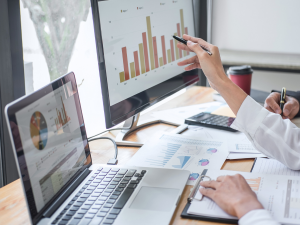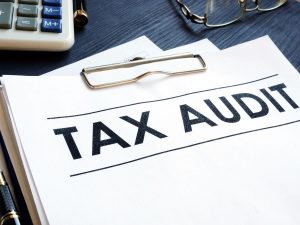If you’re operating your business from home, even on a part-time basis, you could be missing out on some key deductions that a business tax accountant can help you out with.
From home office expenses to electricity bills and even part of your council rates, there a number of deductions to keep in mind, along with some important factors to consider for those running a home-based business.
What is a home-based business?
For you to be classified as a home-based business you need to fit into two defined categories: At-Home Business or From-Home Business.
For example, an At-Home Business could be a cake baking business, with an owner who makes products within a home kitchen and accepts pickup from their residence or delivers the product direct from home to customer. Simply put, these businesses conduct a majority of their operations within their own residence.
In contrast, a From-Home Business may visit clients for out of home work, but perform their business administration, record-keeping, and tool & supply storage at home. An example of this type of business could be a domestic household plumber, who services clients on the road but runs the business from a personal residence.
Even if your home is not your primary place of business, you may be eligible for certain at-home tax deductions. Home offices have become more important than ever as people are working in flexible ways, and certain expenses may be claimable for those utilising these spaces. Having a business tax accountant on board to support your business will help you define your home based business category and allow you to claim the relevant deductions.
What tax deductions is my business eligible for?
If you’re thinking of operating your business from home, or have just started, there are three core categories to keep in mind when planning ahead for tax time:
- Occupancy expenses (such as mortgage interest or rent, council rates, land taxes, house insurance premiums etc.)
- Running expenses (such as electricity, phone, decline in value of plant and equipment, furniture and furnishing repairs, cleaning etc.)
- The cost of business-related motor vehicle trips between your home and other locations, for example to clients’ or suppliers’ premises.
Commonly, these deductions are calculated as a percentage of the home which is used to operate the business. This may include 10% of the home’s total area, 20% of the home’s electricity bill, or for renters, a portion of your home’s monthly rent.
Do I need a business accountant?
An accountant can help you to identify your business type, determine the deductions you are eligible for, and advise you on how you can maximise your tax return in the next financial year. They can also assist you in managing tax implications that may arise when operating a home-based business, such as capital gains tax.
Businesses that claim a percentage of their home as a place of business may have to pay capital gains tax (CGT) if or when the owner sells the property. While usually your main residence is exempt from CGT, utilising it to produce an income (e.g., operating a business) will result in needing to pay CGT on the percentage utilised by your business.
Setting your business up for tax time
Having a home-based business can be a great way to minimize costs and free up your personal time. However, however setting it up can be a little tricky. That’s where a business-focused tax accountant, like DD’s Taxation and Accounting Centre, can come in.
We can take the hassle out of tax time by working with you to ensure your records are in order and your home-based business is set up for success. From expenses, to taxes, to business advice, we can help manage your finances so you can focus on the work that makes your business thrive.
Contact us today to discuss how we can help your home-based business achieve its best financial outcome.




